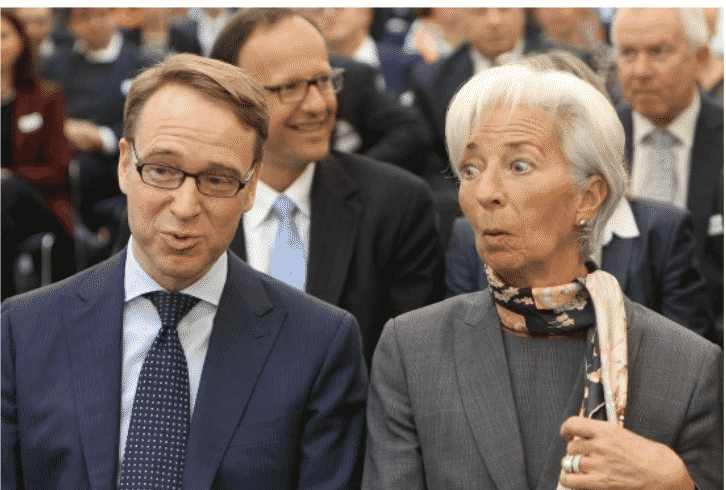I’ve found myself in a bit of an argument with Germany’s Bundesbank about the possibilities of harnessing central bank to the cause of climate change mitigation.
The exchange started with a piece in Foreign Policy this summer.
That produced a debate in Berlin hosted by the Heinrich Böll Stiftung associated with the Green party. Sabine Mauderer and Jakob von Weizäcker represented the Bundesbank and the Finance Ministry respectively.
My opening talk is here (in German).
There is video here.
As the momentum has built around climate change and central banking the Bundesbank hosted a meeting in Frankfurt earlier this week at which Jens Weidmann and Sabine Mauderer outlined the Bundesbank position.
Weidmann’s skeptical position on Green QE was reported by the FT.
When I checked Weidmann’s speech it turned out that the head of the Bundesbank, rather than engaging with the extensive discussion about Green QE that has been going on since 2011, had taken aim at my FP piece. Furthermore, he coupled his opposition to Green QE explicitly to his more general opposition to the latest round of QE launched by the ECB.
Already in the debate in Berlin in September it was remarkable how quickly the debate turned to broader issues of democratic legitimacy, central bank independence etc.
So FP and I felt that I should write a reply to Weidmann, which is here.
Rather than wishing itself back into the good old days when it conducted a sovereign, conservative monetary policy it is time for the Bundesbank to accept its new reality. It is a subordinate part of the eurosystem, more often outvoted than not.
The question is not whether or not there will be QE, but what we are going to do with it. The question is not whether there is democratic and legal legitimacy for climate action. The Paris agreements settled that. The question is whether central banks are going to be part of the solution or part of the problem.

